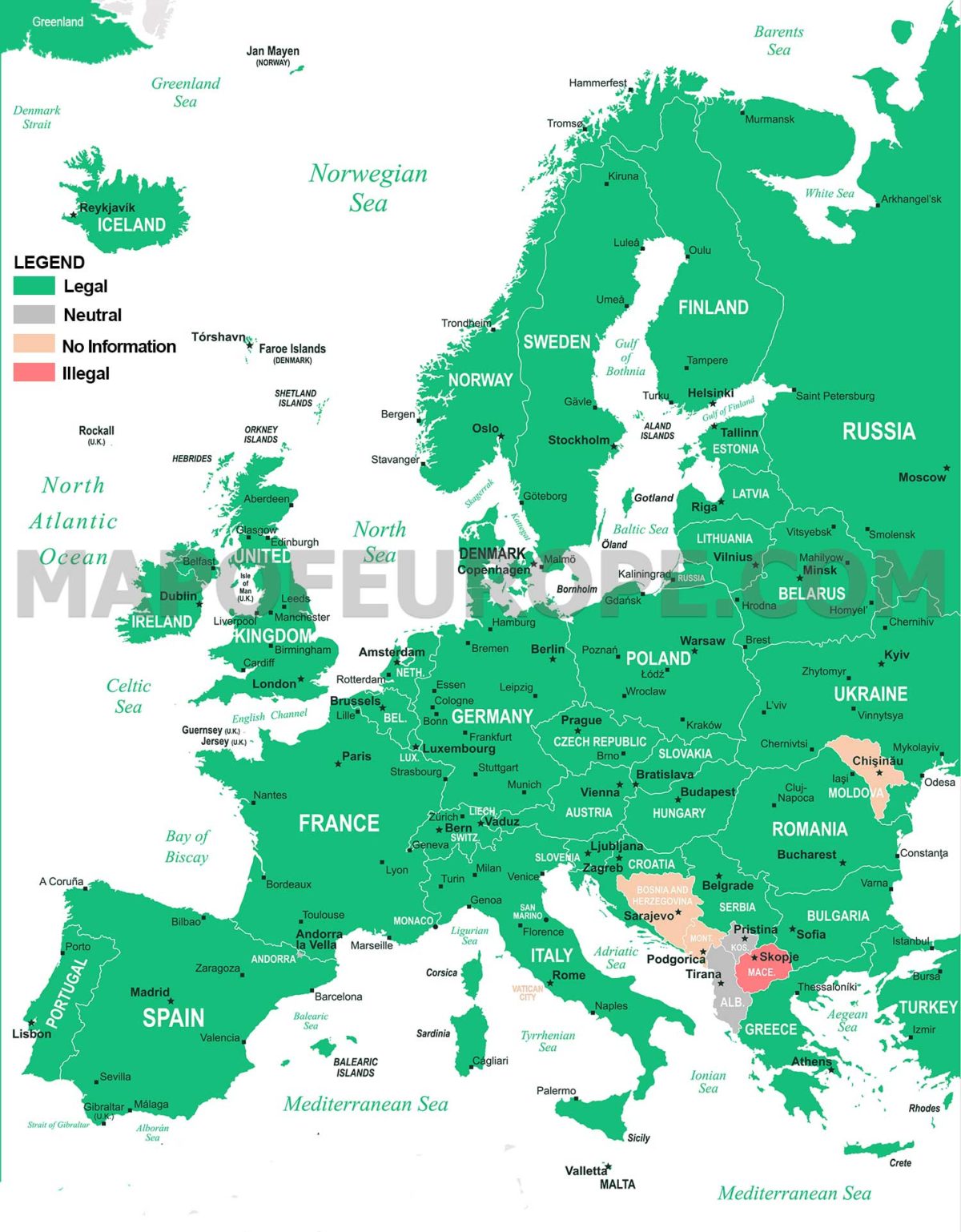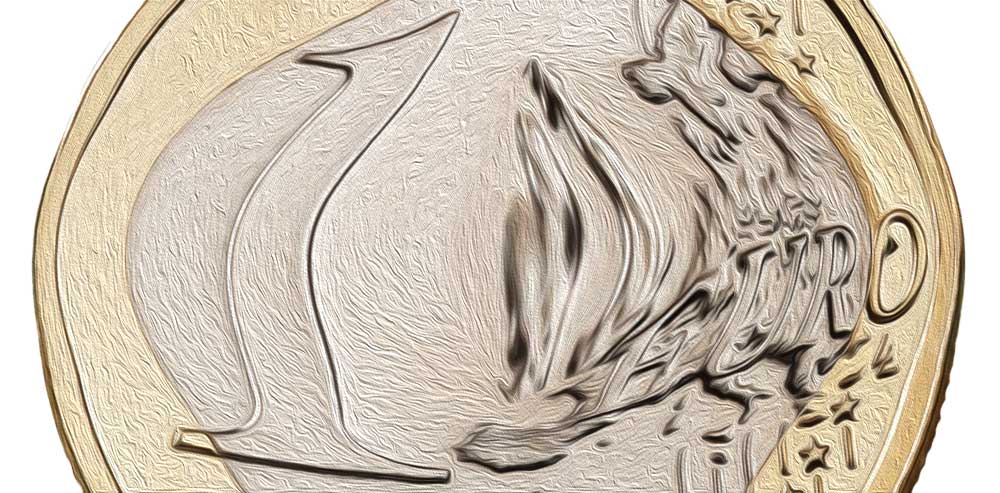How Many European Countries have Legalized Bitcoin?
45 European countries have legalized Bitcoin. 3 Countries are neutral on the legal status of Bitcoin. 6 Countries have provided no information on the legal status of Bitcoin. 1 country (Republic of Macedonia) has made bitcoin illegal. The table below shows what the status is within each European country.
Ont thing we for got to check in the original story was what is the Macedonian Denar worth in Bitcoin at the time of writing this edit it is worth 680101.34 Denar. So there is definitely still an exchange of Denar and BTC occurring. We do think Bitcoin Converter is one of the best sites out there for calculating BTC exchange rates.
| Country Name | Bitcoin Legality | Classification |
| Albania | Neutral | Commodity |
| Andorra | Neutral | No Information |
| Armenia | No Information | No Information |
| Austria | Legal | Barter Good |
| Belarus | Legal | Commodity |
| Belgium | Legal | Currency |
| Bosnia and Herzegovina | No Information | No Information |
| Bulgaria | Legal | Currency |
| Croatia | Legal | Currency |
| Cyprus | Legal | Currency |
| Czech Republic | Legal | Currency |
| Denmark | Legal | Currency |
| Estonia | Legal | Currency |
| Finland | Legal | Currency |
| France | Legal | Commodity |
| Georgia | Legal | No Classification |
| Germany | Legal | Barter Good |
| Gibraltar | Legal | No Information |
| Greece | Legal | Currency |
| Greenland | Legal | Commodity |
| Guernsey | No Information | No Information |
| Vatican City | No Information | No Information |
| Hungary | Legal | Currency |
| Iceland | Legal | Currency |
| Ireland | Legal | Currency |
| Isle of Man | Legal | No Information |
| Italy | Legal | Currency |
| Jersey | Legal | Currency |
| Kosovo | Neutral | No Information |
| Latvia | Legal | Currency |
| Liechtenstein | Legal | Currency |
| Lithuania | Legal | Currency |
| Luxembourg | Legal | Currency |
| Malta | Legal | Currency |
| Monaco | Legal | Currency |
| Montenegro | No Information | No Information |
| Netherlands | Legal | Commodity |
| Poland | Legal | Property |
| Portugal | Legal | No Classification |
| Republic of Macedonia | Illegal | No Information |
| Republic of Moldova | No Information | No Information |
| Romania | Legal | Currency |
| Russian Federation | Legal | Currency |
| San Marino | Legal | Currency |
| Serbia | Legal | Commodity |
| Slovakia | Legal | Currency |
| Slovenia | Legal | Currency |
| Spain | Legal | Currency |
| Svalbard and Jan Mayen | Legal | Commodity |
| Sweden | Legal | Commodity |
| Switzerland | Legal | Currency |
| Turkey | Legal | Commodity |
| Ukraine | Legal | Currency |
| United Kingdom | Legal | Currency |
The sea of green in the map and table above highlights that Bitcoin is legal in almost every country in Europe and is currently legal in all 28 member countries of the European Union. What does this mean for Bitcoin? It is here to stay. As of writing this article Bitcoin is on the verge of surpassing USD$8000.00 again.

Bitcoin has been here before. December 2017 it hit USD$19,783.06 then plummeted to under USD$6200.00 by February 2018. So yes, Bitcoin is volatile there is no denying that but what currency hasn’t been volatile at some point in its history? Bitcoin is still in its infancy, for example the USD has been around since 1785 and has had a volatile history. Eventually most currencies settle down and get into a groove and the market begins to trust it.
Judging by how many countries now accept that bitcoin can be exchanged for goods means that the magical trust factor is already starting to solidify around Bitcoin. This is different from Bitcoin being considered legal tender. Most EU member countries only accept the Euro as legal tender (except the UK). However, shops, pubs, petrol stations and more types of establishments are starting to accept Bitcoin as payment in exchange for goods and services and Bitcoin teller machines are sprouting faster than mushrooms after a summer shower.
Why is Bitcoin Illegal in Macedonia?
The Governor of the National Bank of Macedonia, Dimitar Bogov puts it like this:
“In Macedonia, the legal means for payment in cash and non-cash payment operations is the denar,”
This policy is futile. If a person has access to the internet then they have access to Bitcoin. It is suspected that hundreds if not thousands of Bitcoin transactions a week originate from Macedonia. So a subset of the Macedonia population is already circumventing these laws. If Macedonia wants to join the EU at any time in the future, then the denar will have to be dropped and at this point it is widely suspected that Bitcoin will no longer be outlawed. Some commentators that it may become legal long before that anyway. You can compare this map image to the standard map of Europe.


